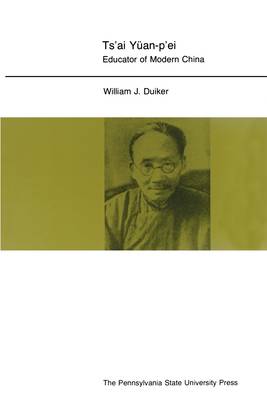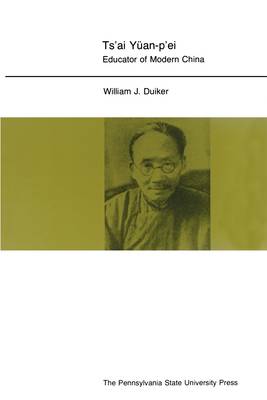
- Afhalen na 1 uur in een winkel met voorraad
- Gratis thuislevering in België vanaf € 30
- Ruim aanbod met 7 miljoen producten
- Afhalen na 1 uur in een winkel met voorraad
- Gratis thuislevering in België vanaf € 30
- Ruim aanbod met 7 miljoen producten
Omschrijving
In the broadest sense, this intellectual biography is designed to give insight into the reasons why Western values and institutions (especially in education) failed to take root in the Chinese environment. Three interrelated themes are treated by Professor Duiker: the evolution of the Chinese educational system from the beginning of the 20th century to World War II; the process by which a Chinese intellectual absorbed Western values and attitudes while retaining significant elements of his traditional Confucian world view; the goals of the humanist movement in early republican China and the reasons for its failure.
Ts'ai (1868-1940), as first Minister of Education under the 1912 republic, helped to formulate educational policies during an important stage of transition in modern China. Later, as chancellor of Peking University, he was a central figure in the tumultuous events of the May Fourth period. Having been educated traditionally to the doctoral (chin shih) level before studying at a European university, Ts'ai attempted to synthesize the humanist side of the Confucian tradition with the libertarian elements in Western culture. Ts'ai's synthesis was unique but ultimately unsuccessful.
Penn State Study No. 41
Specificaties
Betrokkenen
- Auteur(s):
- Uitgeverij:
Inhoud
- Aantal bladzijden:
- 136
- Taal:
- Engels
Eigenschappen
- Productcode (EAN):
- 9780271024516
- Verschijningsdatum:
- 1/11/1977
- Uitvoering:
- Paperback
- Formaat:
- Trade paperback (VS)
- Afmetingen:
- 157 mm x 232 mm
- Gewicht:
- 222 g

Alleen bij Standaard Boekhandel
Beoordelingen
We publiceren alleen reviews die voldoen aan de voorwaarden voor reviews. Bekijk onze voorwaarden voor reviews.











